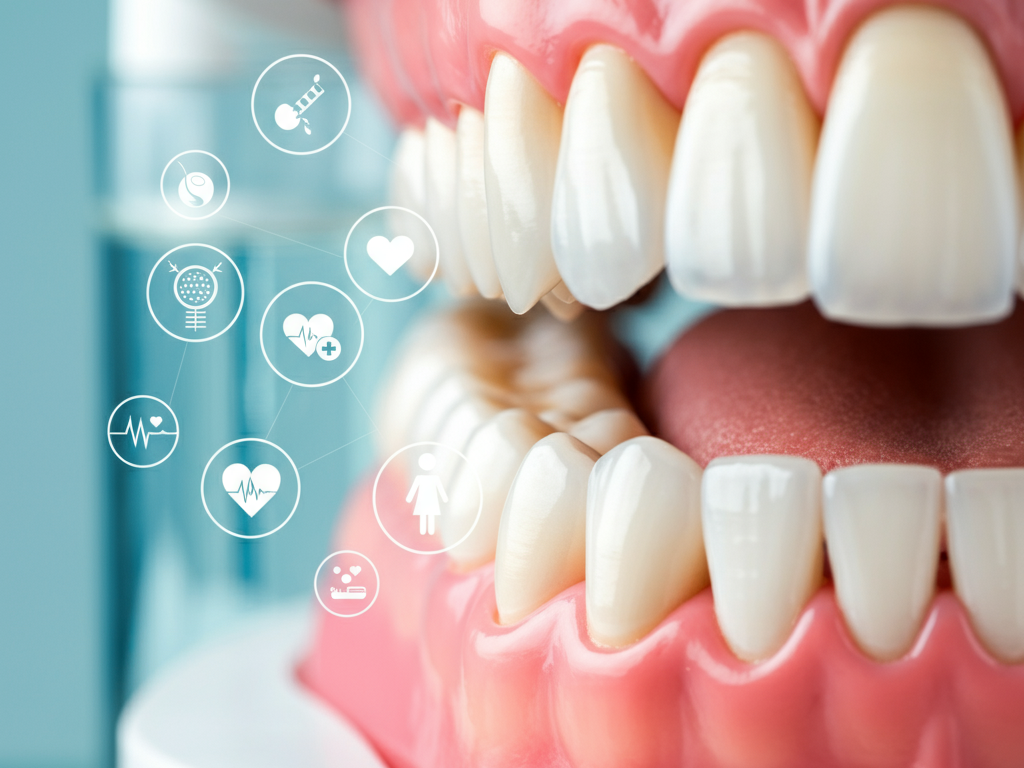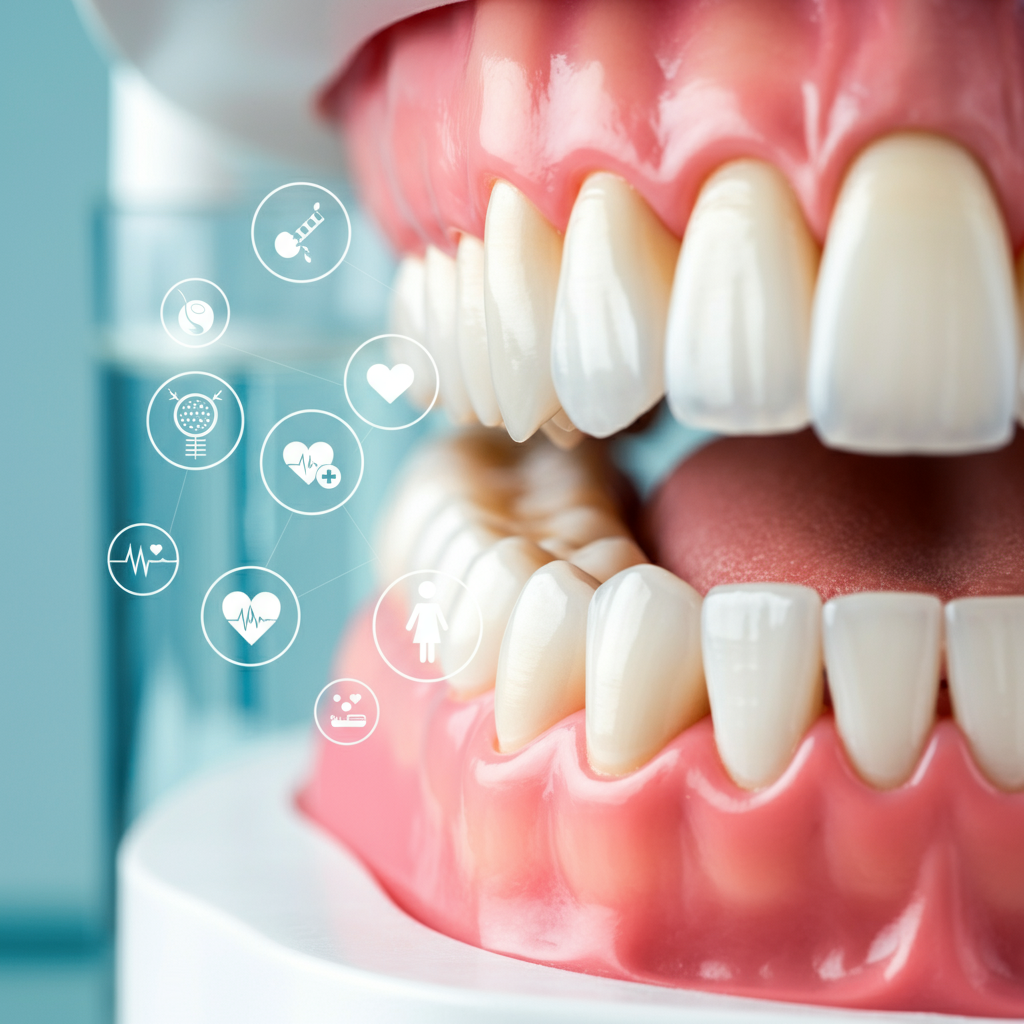When you think of oral health, brushing your teeth or avoiding cavities might come to mind first. But your gums play a crucial role in keeping your entire mouth — and even your overall body — healthy. Unfortunately, gum health is often overlooked, even though it serves as the foundation for a strong, healthy smile.
Here, we’ll explore five surprising facts about gum health and why paying attention to your gums is important not only for your teeth but for your overall well-being. You’ll also learn practical tips to prevent gum disease and keep your gums in excellent condition.
1. Gum Disease Is More Common Than You Think
Did you know that nearly half of adults over the age of 30 in the United States have some form of gum disease? According to the CDC, periodontal disease affects approximately 47% of adults, and those numbers rise to 70% for adults over 65.
Gum disease, also known as periodontal disease, often starts as gingivitis, a mild inflammation of the gums caused by plaque buildup. Without treatment, it can progress into periodontitis, a more severe form that damages gum tissue and bone beneath your teeth.
What makes gum disease so pervasive is that it often develops silently, with minor symptoms easily ignored or mistaken for something less serious. Pay attention to telltale signs like bleeding gums, persistent bad breath, or red, swollen gums — these might be your body’s way of telling you it’s time to take action.
Tip to Prevent Gum Disease
Brush and floss daily to remove plaque before it hardens into tartar, which can only be removed professionally. Regular dental cleanings can further reduce your risk of gum disease.
2. Your Gums Can Impact Your Heart Health
Your mouth is deeply connected to the rest of your body, and the health of your gums can significantly affect your heart. Researchers have found a link between gum disease and an increased risk of heart conditions, such as heart disease, heart attacks, and stroke.
When gum disease develops, harmful bacteria can enter your bloodstream, leading to inflammation in blood vessels throughout your body. Chronic inflammation is a key contributor to cardiovascular issues, making good gum care vital for maintaining heart health.
For instance, a 2019 study published in the Journal of the American Heart Association found that individuals with gum disease are more likely to develop high blood pressure, further strengthening the connection between oral and cardiovascular health.
Tip to Protect Your Heart
Don’t skip your regular dental visits. If your gums bleed frequently or show signs of inflammation, talk to your dentist before it worsens. Managing risk factors like smoking and poor oral hygiene can also help reduce your risk of gum-related heart complications.

3. Gum Health Can Affect Your Blood Sugar Levels
If you’re living with diabetes, maintaining healthy gums is particularly crucial. Research shows that gum disease can make it harder to control blood sugar levels, and, conversely, high blood sugar levels can worsen gum disease.
This two-way relationship can create a cycle where poor gum health complicates diabetes management, and uncontrolled diabetes accelerates gum disease progression. According to the American Diabetes Association, people with diabetes are at a higher risk of developing serious gum issues, including periodontal abscesses.
Fortunately, effective gum care can improve diabetes management. Studies show that treating gum inflammation can lead to lower blood sugar levels, making oral hygiene an essential component of diabetes care.
Tip for Healthy Gums and Diabetes
If you have diabetes, work closely with both your dentist and doctor to coordinate care. Practice diligent oral hygiene, including brushing, flossing, and cleaning your tongue to minimize harmful bacteria.
4. Gum Disease Can Be Reversed in Its Early Stages
The good news about gum disease is that catching it early can lead to full recovery. Gingivitis, the mildest form of gum disease, is completely reversible with proper care.
Common symptoms of gingivitis include redness, swelling, and bleeding when you brush or floss. If detected early, these symptoms can often be resolved with professional cleanings and consistent at-home care.
However, once gingivitis progresses to periodontitis, the damage becomes more permanent. At this stage, gum tissue and bone may start deteriorating, requiring advanced treatments such as scaling, root planing, or even surgery in severe cases.
Tip to Reverse Gingivitis
If you notice early signs of gum disease, act quickly. Use an antibacterial mouthwash, maintain a strict oral hygiene routine, and schedule a professional cleaning.
5. Stress and Lifestyle Choices Can Impact Gum Health
While brushing and flossing are foundational to oral care, your lifestyle habits also play a significant role in your gums’ health. Stress, for example, can compromise your immune system, making it harder for your body to fight off infections, including gum disease. Additionally, habits like smoking and poor nutrition can weaken your gums and make them more susceptible to bacteria.
Smoking, in particular, is one of the biggest risk factors for gum disease. It restricts blood flow to the gums, impairs healing, and exacerbates existing conditions. Meanwhile, a diet low in vitamins C and D can reduce your gums’ ability to repair themselves and ward off harmful pathogens.
Tip to Maintain Gum Health with Lifestyle Changes
Focus on a balanced diet rich in vitamins and whole foods like leafy greens, citrus fruits, and lean proteins. Manage stress through techniques like meditation or exercise, and if you smoke, consider quitting — your gums (and overall health) will thank you.
How to Keep Your Gums Healthy
Preventing gum disease doesn’t have to be complicated. Here are four essential steps you can incorporate into your daily routine to promote healthier gums:
- Brush Effectively: Use a soft-bristled brush and fluoride toothpaste to clean your teeth thoroughly twice a day. Don’t forget to brush along the gumline.
- Floss Daily: Proper flossing removes food particles and plaque in hard-to-reach areas between teeth, reducing gum inflammation.
- Rinse with an Antibacterial Mouthwash: A mouthwash designed to fight bacteria can help maintain healthy gums by reducing plaque and killing germs.
- Visit Your Dentist Regularly: Routine checkups and cleanings are key to catching issues early and keeping your gums in peak health.
The Importance of Gum Health
Your gums aren’t just there to hold your teeth in place. They are a vital part of your overall health, influencing everything from heart function to blood sugar control. By maintaining strong gums, you’re taking an important step toward a lifetime of improved well-being.
Now that you know more about gum health, it’s time to act. Stay consistent with your oral hygiene, be mindful of your lifestyle choices, and visit your dentist regularly. A little effort goes a long way in protecting your gums — and your entire body. After all, a healthy smile starts with healthy gums!


